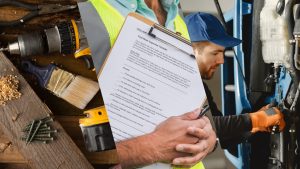The rise of Industry 4.0 has changed how industries manage their assets, introducing smart systems and data-driven tools that support better decision-making. In this new age, asset reliability, or keeping machines running smoothly without unexpected failures, plays a key role in keeping production steady and safe. As we can see, the industrial world now faces growing pressure to shift from old maintenance habits to modern, smart maintenance methods.
In this article, we explore how today’s industries can improve asset reliability by embracing the latest Industry 4.0 technologies and building stronger, more efficient operations.
In this article, we explore how today’s industries can improve asset reliability by embracing the latest Industry 4.0 technologies and building stronger, more efficient operations.
We understand
- Understanding Asset Reliability in Modern Industry
- Key Benefits of Pursuing Asset Reliability Through Industry 4.0
- Reduced Unplanned Downtime and Repair Costs
- Extended Equipment Lifespan through Proactive Insights
- Improved Safety and Regulatory Compliance
- Increased Operational Efficiency and Productivity
3. Steps to Enhance Asset Reliability Using Industry 4.0 Tools
4. Embracing Modern Technology to Stay Competitive
Understanding Asset Reliability in Modern Industry

- In modern industry, asset reliability means keeping machines, tools, and equipment working well without breaking down during their expected asset lifecycle. When things stop working, businesses lose time, spend money on repairs, and sometimes face safety problems for workers.
- These breakdowns can also slow down production and lower trust in the system.
- Many companies used to rely on reactive maintenance, where they only fixed things after they broke. Others used preventive maintenance, where they followed a set schedule for repairs, even if the equipment did not need it yet.
- While these methods helped a little, they did not always stop problems before they happened. Now, more companies focus on reliability-centred maintenance, which means they study how each machine works, look at patterns, and then decide the best time to service it.
- This way, they improve equipment performance while cutting down on waste and surprise failures.
Key Benefits of Pursuing Asset Reliability Through Industry 4.0

Reduced Unplanned Downtime and Repair Costs
When machines stop working without warning, everything comes to a sudden halt, and that hits hard with expensive repairs and lost time. Industry 4.0 changes this game through smart tools like real-time monitoring and predictive maintenance benefits, which help teams fix things before they break.
Instead of reacting to problems, companies now plan their maintenance with more accuracy, so they avoid last-minute panic and save a lot on emergency repairs. These digital tools track patterns in how machines behave and send alerts when something looks off, giving staff enough time to step in.
This smoother process leads to fewer breakdowns and shorter repair times, which means less money spent on spare parts and technicians rushing in to fix issues. On top of that, planned maintenance does not interrupt production as much as surprise breakdowns do. The truth is, companies cannot afford to keep working in the dark and hoping for the best. They need tools that shine a light on small problems before they turn into big ones.
So when they use smart tech to improve reliability, they unlock real cost reduction and protect their time, energy, and resources while keeping things running as they should.
Instead of reacting to problems, companies now plan their maintenance with more accuracy, so they avoid last-minute panic and save a lot on emergency repairs. These digital tools track patterns in how machines behave and send alerts when something looks off, giving staff enough time to step in.
This smoother process leads to fewer breakdowns and shorter repair times, which means less money spent on spare parts and technicians rushing in to fix issues. On top of that, planned maintenance does not interrupt production as much as surprise breakdowns do. The truth is, companies cannot afford to keep working in the dark and hoping for the best. They need tools that shine a light on small problems before they turn into big ones.
So when they use smart tech to improve reliability, they unlock real cost reduction and protect their time, energy, and resources while keeping things running as they should.
Extended Equipment Lifespan through Proactive Insights
Machines do not last forever, but when businesses understand what causes wear and tear, they can step in early and keep equipment running longer.
Industry 4.0 tools like sensors, dashboards, and predictive maintenance benefits help maintenance teams spot early warning signs, like strange sounds or heat levels, before those signs turn into full-blown damage. Instead of replacing machines every few years, companies can stretch out the equipment’s lifespan through smart planning and care.
This does not just save money, but it also keeps equipment in better shape, which boosts equipment efficiency and performance. Teams no longer guess when to replace a part; they know when it is needed and why.
So instead of swapping out a motor too early or too late, they do it at just the right moment.
Industry 4.0 tools like sensors, dashboards, and predictive maintenance benefits help maintenance teams spot early warning signs, like strange sounds or heat levels, before those signs turn into full-blown damage. Instead of replacing machines every few years, companies can stretch out the equipment’s lifespan through smart planning and care.
This does not just save money, but it also keeps equipment in better shape, which boosts equipment efficiency and performance. Teams no longer guess when to replace a part; they know when it is needed and why.
So instead of swapping out a motor too early or too late, they do it at just the right moment.
Improved Safety and Regulatory Compliance
When equipment fails, people get hurt, and laws get broken. Yes, that is the harsh reality.
Industry 4.0 helps companies avoid these risks by making sure assets run safely and meet every rule in the book. With tools like condition monitoring and AI asset monitoring, safety teams catch issues early before they turn dangerous. Sensors track things like pressure, speed, or temperature and warn staff if anything crosses a safe limit.
Moreover, that early warning stops accidents and helps workers stay safe on the job.
At the same time, businesses need to follow strict rules to avoid legal trouble, and they often struggle to keep up with documentation and inspections. But when they use smart systems to record everything and prove compliance, they save time and protect their reputation.
On the other hand, these systems create automatic reports that show exactly what happened, when it happened, and what was done about it.
Industry 4.0 helps companies avoid these risks by making sure assets run safely and meet every rule in the book. With tools like condition monitoring and AI asset monitoring, safety teams catch issues early before they turn dangerous. Sensors track things like pressure, speed, or temperature and warn staff if anything crosses a safe limit.
Moreover, that early warning stops accidents and helps workers stay safe on the job.
At the same time, businesses need to follow strict rules to avoid legal trouble, and they often struggle to keep up with documentation and inspections. But when they use smart systems to record everything and prove compliance, they save time and protect their reputation.
On the other hand, these systems create automatic reports that show exactly what happened, when it happened, and what was done about it.
Increased Operational Efficiency and Productivity
When everything runs smoothly, industrial teams can focus on doing great work instead of fighting fires all day. That is where Industry 4.0 truly shines!
It is visible that it helps workers use their time and tools better through real-time updates and smart planning. With predictive maintenance benefits, managers do not waste time checking machines that do not need fixing or rushing around when something breaks unexpectedly. Instead, they make decisions based on real data, and that boosts equipment efficiency while reducing wasted effort.
This way, machines stay in good shape, so they do not slow down production or stop mid-task. Workers feel less pressure and get more done because they do not have to stop and restart jobs constantly. On top of that, automated systems handle routine tasks like scheduling maintenance or tracking performance, so staff can focus on things that really matter.
So, there is no doubt that when companies use these digital tools well, they run faster, smoother, and more confidently.
It is visible that it helps workers use their time and tools better through real-time updates and smart planning. With predictive maintenance benefits, managers do not waste time checking machines that do not need fixing or rushing around when something breaks unexpectedly. Instead, they make decisions based on real data, and that boosts equipment efficiency while reducing wasted effort.
This way, machines stay in good shape, so they do not slow down production or stop mid-task. Workers feel less pressure and get more done because they do not have to stop and restart jobs constantly. On top of that, automated systems handle routine tasks like scheduling maintenance or tracking performance, so staff can focus on things that really matter.
So, there is no doubt that when companies use these digital tools well, they run faster, smoother, and more confidently.
Steps to Enhance Asset Reliability Using Industry 4.0 Tools

- Assess Current Asset Management Practices and Identify Gaps
- Implement Smart Sensors and IoT for Condition Monitoring
- Integrate Systems for Centralised Data Access and Analysis
- Apply Predictive Analytics for Early Failure Detection
- Train Workforce in Digital Asset Management Techniques
Embracing Modern Technology to Stay Competitive

No doubt that modern industries win when they combine asset reliability with a forward-thinking Industry 4.0 maintenance strategy. Smart maintenance powered by real-time data leads to fewer failures, longer equipment life, and safer work environments. Digital tools purchased from an industry expert do not just support growth; they drive it. It is time to embrace digital transformation now to build a future-ready business that moves faster, works smarter, and stays competitive in every market shift.







